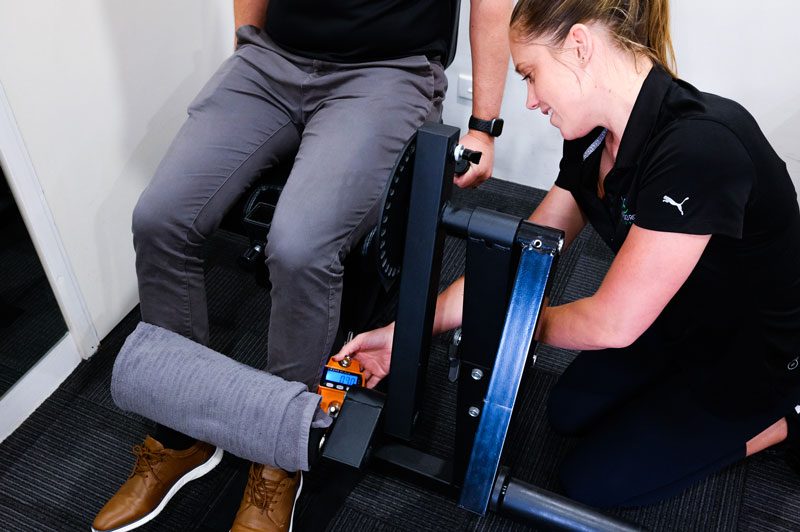What is it?
Patellofemoral term is considered an umbrella term for knee cap pain, or pain related to the knee cap. Despite most commonly being a pain at the front of the knee, it is known to produce pain on the inside, outside, or back of the knee as well. It is also one of the most common knee issues seen by physiotherapists among a wide range of demographics.
What causes it?
As with any injury, patellofemoral pain can have several contributing factors. These factors can be intrinsic, extrinsic, local to the knee, regional to other areas, and of course (and perhaps most importantly) moderated by our central nervous system – our fears, beliefs, past experiences, mental health, and general health.
Let me explain these further!
- Intrinsic – internal factors local to the knee:
- These include issues local to the knee and can be assessed and considered by your physiotherapist.
- They may include inflammation, bruising, changes to the bone or cartilage, and many other local changes.
- Intrinsic – internal factors in surrounding regions:
- Gluteal weakness or dysfunction
- Hip posture and stability
- Tightness in the quads and calves
- Foot posture, pronation, or instability
- VMO (inner quad) weakness
- General quad strength and control
- Extrinsic factors – external factors that externally may predispose the onset of patellofemoral pain:
- Increased uphill/downhill, upstairs/downstairs
- Squatting
- Kneeling
- Running, particularly with hills
- An increase or change in any above factors
- Central nervous system – the part of you that interprets pain and controls your response:
- Beliefs surrounding knee pain
- Fear of movement and pain
- Past experiences with knee pain (or any pain)
- Anxiety/depression
- Stress
- General health
Presentation:
The symptoms and causes of patellofemoral pain vary uniquely between each patient. For some, they may experience pain worse going downstairs, indicating that there is likely an issue of muscle length and muscle control. For someone with pain worse going upstairs, it is more likely there is an issue of strength and range of movement. For someone with pain while sitting, they may need to work muscle length. Our role as physiotherapists is to get a thorough history and assessment, that determines exactly what is both causing and contributing to your knee pain, and guide you through the management that is tailored to you.
Physiotherapy intervention:
Believe it or not, the last thing we want to do is hurt you more! Which is exactly why physiotherapy guided management is so important. Patellofemoral pain can be managed in a number of ways, however not all interventions apply to everyone. Some common physiotherapy interventions include:
- Strengthening exercises to target quads and glutes (again, the exercise can vary depending on the pain)
- Stretching exercise for tight muscles that may place extra tension on the knee (quadriceps, calves)
- Activation of muscles that may not be firing correctly, or may be delayed in the onset of activity (such as glutes or VMO)
- Exercises to focus on stability and control – including through the hip and ankle, alongside the knee
- Assist with return to specific requirements for work, sport or physical activity
Crepitus – noisy knees!
It always is worth mentioning that creaky, clicky or crunchy knees does not mean your knees are a problem. In fact, researchers have found that there is no link between crepitus/noisy knees and pain, function, or ability to do physical activity. More commonly, the presence of crepitus has a larger impact on a person’s psyche – they are more likely to feel fearful, apprehensive, avoidant and catastrophise the issue. It’s important to note that crepitus is a completely normal phenomena that has no impact on function.

